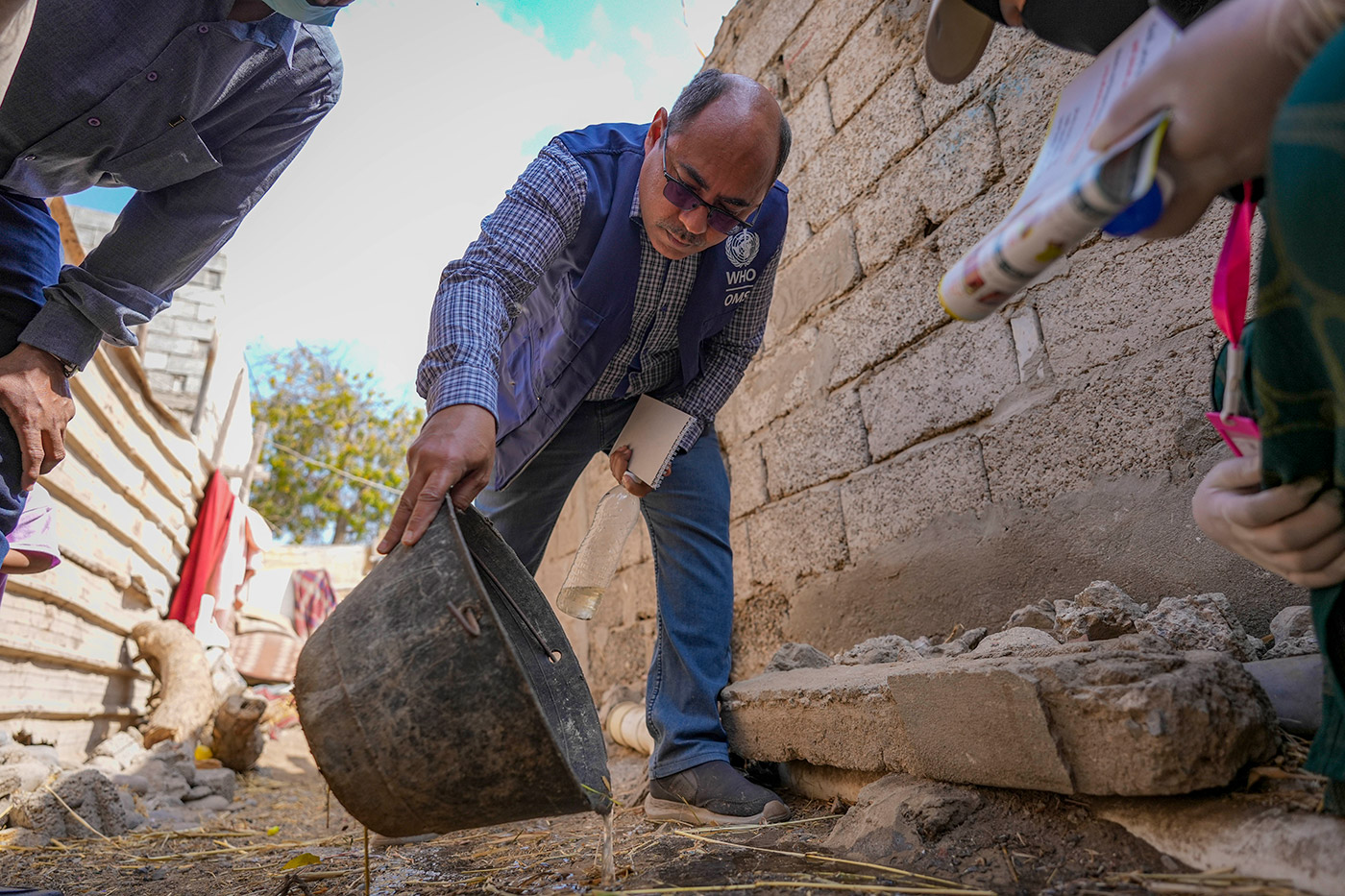 Aden, Yemen, 25 April 2025 - On World Malaria Day 2025, the World Health Organization (WHO) is calling for urgent and united action to control malaria in Yemen. This year’s global theme, “Malaria Ends with Us: Reinvest, Reimagine, Reignite”, underscores the need for collective responsibility, innovation and investment to end this preventable and treatable disease.
Aden, Yemen, 25 April 2025 - On World Malaria Day 2025, the World Health Organization (WHO) is calling for urgent and united action to control malaria in Yemen. This year’s global theme, “Malaria Ends with Us: Reinvest, Reimagine, Reignite”, underscores the need for collective responsibility, innovation and investment to end this preventable and treatable disease.
Malaria continues to place a heavy burden on vulnerable communities across Yemen, particularly in hard-to-reach areas. A weakened health system, the result of years of conflict, and climate change, compound the challenges of fighting against malaria. WHO, together with the Ministry of Public Health and Population (MoPHP) and its partners, is stepping up efforts to deliver tailored, lifesaving interventions and ensure access to timely diagnosis and effective treatment.
“Despite the immense challenges, Yemen has an opportunity to make real progress against malaria,” said Acting WHO Representative in Yemen Dr Ferima Coulibaly-Zerbo. “We are working hand-in-hand with the Ministry of Public Health and Population and health partners to scale up prevention, strengthen surveillance and reach those most in need with essential services.”
WHO and MoPHP are implementing context-specific approaches guided by realities on the ground. They include enhancing malaria surveillance systems, addressing malaria drug and insecticide resistance, promoting community-based vector control and expanding access to diagnostics and treatment services, particularly in remote and underserved districts.
Key figures from Yemen’s malaria programme
In 2024, Yemen recorded 210,022 confirmed malaria cases, with 18 related deaths. Over 2 million insecticide-treated nets (ITNs) were distributed nationwide, and 1,735,000 suspected cases tested at sentinel and peripheral health facilities. More than 2,294 community health workers have been trained to support local malaria surveillance and response. These efforts, though significant, need to be urgently scaled up to meet elimination targets.
Eliminating malaria in Yemen will require sustained political commitment, stronger national ownership and increased domestic and international investments. WHO is advocating for greater resource mobilization and collaboration with donors, UN agencies, NGOs, civil society and the private sector to bridge critical funding gaps and deliver on the promise of a malaria-free future.
“Malaria elimination in Yemen is an ambitious yet achievable target,” added Dr Coulibaly-Zerbo. “It will take commitment, strategic investment and strong partnerships. WHO remains fully committed to supporting the government and communities across Yemen in this vital fight. A Yemen free from malaria is a step towards health security, resilience and sustainable development.”
As the world marks World Malaria Day, WHO Yemen urges all stakeholders to reaffirm their commitment and scale up support to end malaria in Yemen once and for all.
Media contacts
WHO Yemen Communications:
About WHO
Since 1948, the World Health Organization (WHO) has been the United Nations agency dedicated to advancing health for all, so that everyone, everywhere can attain the highest level of health. WHO leads global efforts to expand universal health coverage, direct and coordinate the world’s responses to health emergencies and connect nations, partners and people to promote health, keep the world safe and serve the vulnerable.








